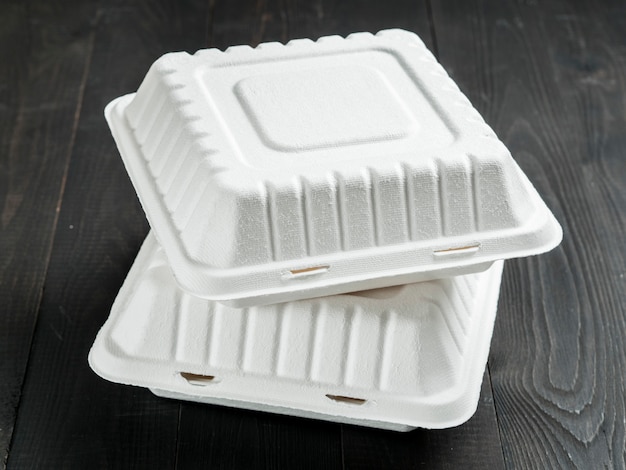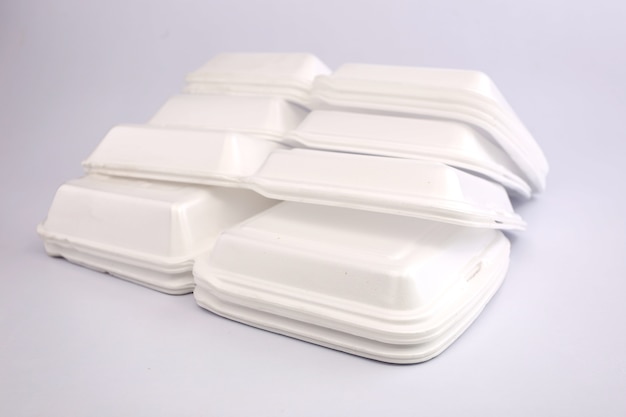Lagos State Government has announced a ban on the use and distribution of styrofoam and other single-use plastics in the state with immediate effect. This decision was made to protect the environment from the menace of styrofoam and plastic waste, which clog the drainage channels, litter the roads, and could lead to public health issues. The ban affects the production, distribution, and usage of styrofoam and single-use plastics, and violators may face heavy fines, penalties, or sealing of their premises. The ban is based on several laws and regulations that prohibit and ban single-use plastic in the country, such as the National Environmental (Sanitation and Waste Control) Regulation 2009 and the 2017 State Environmental Management and Protection Law. The ban is also in line with the global efforts to reduce plastic pollution and promote sustainable development.
But how will this ban affect you and the environment? And what are the benefits and challenges of this policy? In this article, we will answer these questions and more.
What is Styrofoam and Why is it Bad for the Environment?
Styrofoam is a trademark name for a type of polystyrene foam that is widely used for packaging, insulation, and food containers. It is lightweight, cheap, and durable, which makes it convenient for many purposes. However, styrofoam is also one of the most problematic materials for the environment, for several reasons:
- Styrofoam is non-biodegradable, which means it does not break down naturally in the environment. It can take hundreds or thousands of years to decompose, and even then, it leaves behind microplastics that can contaminate the soil and water.
- Styrofoam is not recyclable, which means it cannot be reused or repurposed. Most recycling facilities do not accept styrofoam, and even if they do, the process is costly and inefficient. Therefore, most styrofoam ends up in landfills, where it takes up a lot of space and releases harmful chemicals.
- Styrofoam is harmful to wildlife, especially marine animals. Styrofoam can be easily carried by the wind or water to the oceans, where it can be mistaken for food by fish, birds, turtles, and other creatures. Ingesting styrofoam can cause choking, starvation, or poisoning for the animals, and can also affect the food chain and the ecosystem.
- Styrofoam is harmful to human health, especially when heated or burned. Styrofoam can leach chemicals such as styrene and benzene, which are known carcinogens, into the food or drink that it contains. These chemicals can cause various health problems, such as headaches, nausea, respiratory issues, nervous system disorders, and cancer. Burning styrofoam can also release toxic fumes that can pollute the air and cause eye, nose, and throat irritation, as well as asthma and lung diseases.

What are the Benefits of the Ban on Styrofoam by Lagos State?
The ban on styrofoam by Lagos State is a positive step towards addressing the environmental and health issues caused by styrofoam and other single-use plastics. Some of the benefits of this ban are:
- Reducing the amount of waste generated and disposed of in the state: According to the Lagos State Waste Management Authority (LAWMA), styrofoam and other single-use plastics make up a large chunk of the littering across major roads and markets, which they have to contend with daily. By banning these materials, the state can reduce waste management costs and improve the cleanliness and aesthetics of the city.
- Improving the drainage and flood control system in the state: One of the major causes of flooding in Lagos is the blockage of the drainage channels by styrofoam and other single-use plastics, which prevent the free flow of water and cause overflow. By banning these materials, the state can prevent the clogging of the drains and improve the drainage and flood control system, which can also reduce the risk of waterborne diseases and property damage.
- Protecting the wildlife and biodiversity in the state: Lagos is a coastal city that has a rich and diverse marine life, such as fish, crabs, shrimps, and turtles. However, these animals are threatened by styrofoam and other single-use plastics that end up in the water, where they can cause injury, death, or extinction. By banning these materials, the state can protect the wildlife and biodiversity in the state, and also preserve the fishing and tourism industries that depend on them.
- Enhancing the public health and safety in the state: Lagos is a populous city that has a high demand for food and drink, especially street food and takeaway. However, many of these foods and drinks are packaged or served in styrofoam and other single-use plastics, which can pose health risks to the consumers and the vendors. By banning these materials, the state can enhance public health and safety in the state and also promote the use of safer and healthier alternatives.
What are the Challenges of the Ban on Styrofoam by Lagos State?
The ban on styrofoam by Lagos State is not without its challenges and drawbacks. Some of the challenges of this ban are:
- Finding suitable and affordable alternatives to styrofoam and other single-use plastics. Styrofoam and other single-use plastics are widely used because they are cheap, convenient, and durable. Finding alternatives that can match these qualities and also be environmentally friendly and biodegradable can be difficult and costly.
- Ensuring compliance and enforcement of the ban. The ban on styrofoam and other single-use plastics requires the cooperation and participation of all the stakeholders, such as the producers, distributors, consumers, and regulators. However, not everyone may be aware, willing, or able to comply with the ban, especially if they have vested interests, habits, or preferences that favour the use of these materials. Ensuring compliance and enforcement of the ban may require intensive education, awareness, and sensitization campaigns, as well as strict monitoring, inspection, and sanctioning of the violators.
- Dealing with the existing stock and waste of styrofoam and other single-use plastics. The ban on styrofoam and other single-use plastics does not address the existing stock and waste of these materials that are already in circulation or the environment. These materials may still be used, sold, or dumped by some people, or may remain in the landfills or the oceans for a long time. Dealing with the existing stock and waste of styrofoam and other single-use plastics may require innovative and sustainable solutions, such as recycling, upcycling, or incineration.
Conclusion
The ban on styrofoam by Lagos State is a commendable and courageous policy that aims to protect the environment and the people from the harmful effects of styrofoam and other single-use plastics. The ban has many benefits, such as reducing waste, improving drainage and flood control, protecting wildlife and biodiversity, and enhancing public health and safety. However, the ban also has some challenges, such as finding suitable and affordable alternatives, ensuring compliance and enforcement, and dealing with the existing stock and waste. These challenges can be overcome by creating awareness, providing incentives, supporting innovation, and fostering collaboration among all the stakeholders. The ban on styrofoam by Lagos State is a step in the right direction, but is it not enough to solve the plastic pollution crisis?

 We use cookies to ensure that we give you the best experience on our website. If you continue to use this site we will assume that you are happy with it.
We use cookies to ensure that we give you the best experience on our website. If you continue to use this site we will assume that you are happy with it.